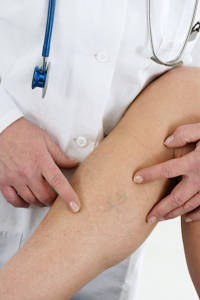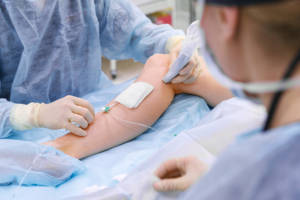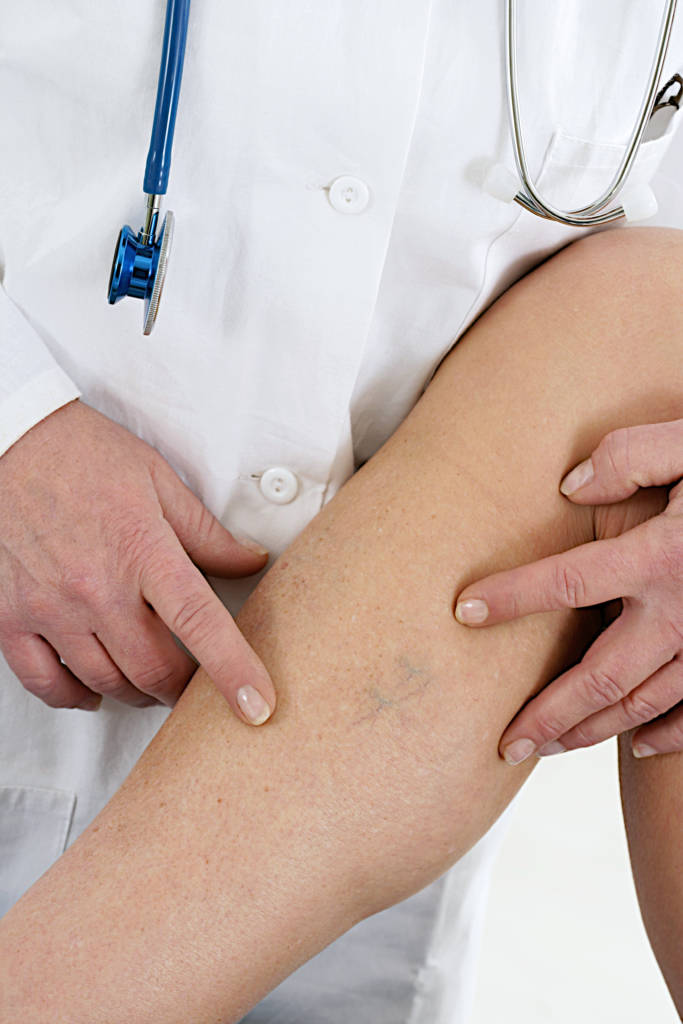Varicose Veins, Vein Ablation
Vein Ablation? Let The Buyer Beware!
 Varicose veins are fairly common. In fact, they affect about 30 – 40 million Americans. Many people have no pain or cosmetic issues. However, in many patients, large varicose veins are uncomfortable or present unacceptable cosmetic concerns. In the past, patients would undergo a “vein stripping” procedure. Typically this procedure was performed in the hospital by a vascular surgeon. Vascular surgeons are specifically trained in the treatment of arteries and veins. The primary care physician often referred patients to vascular surgeons for the management of varicose veins.
Varicose veins are fairly common. In fact, they affect about 30 – 40 million Americans. Many people have no pain or cosmetic issues. However, in many patients, large varicose veins are uncomfortable or present unacceptable cosmetic concerns. In the past, patients would undergo a “vein stripping” procedure. Typically this procedure was performed in the hospital by a vascular surgeon. Vascular surgeons are specifically trained in the treatment of arteries and veins. The primary care physician often referred patients to vascular surgeons for the management of varicose veins.
Over the years the treatment of varicose veins has refined and become more minimally invasive. Where in the past, the offending vein was removed in the operating room; it currently can be obliterated without a surgical procedure in a physician’s office. This procedure is known as a vein ablation and can be performed with laser, radiofrequency waves or chemicals. The vein ablation is certainly less invasive and more comfortable for patients. However, by moving a procedure out of the hospital into the physician’s office, the regulatory oversight is no longer there. Hence, this has invited many other practitioners to take a weekend course and start becoming “vein specialists”. This vein ablation procedure is relatively well reimbursed by insurers. So the newly trained “vein specialists” have generated a new revenue stream…unfortunately, it may be at the expense of their patients.
Many patients are currently directed to vein centers and medical spas by flashy ads and promises of a simple treatment for their veins. Unfortunately, many patients are being treated with vein ablations when they should not be treated with this method or any method at all. We typically see a fair num ber of patients as second opinions that can often be treated with lesser procedures and have been offered a vein ablation by these newly minted “vein specialists”. A vein ablation procedure is a relatively safe procedure, however, it does close down an important vein that may be necessary for open-heart surgery in the future. In some cases, patients have been promised certain results from a vein ablation that are not met. In fact, we have seen plenty of patients that have had normal veins ablated by these practitioners.
ber of patients as second opinions that can often be treated with lesser procedures and have been offered a vein ablation by these newly minted “vein specialists”. A vein ablation procedure is a relatively safe procedure, however, it does close down an important vein that may be necessary for open-heart surgery in the future. In some cases, patients have been promised certain results from a vein ablation that are not met. In fact, we have seen plenty of patients that have had normal veins ablated by these practitioners.
The reality is that most practitioners do try and offer appropriate vein treatments for their patients. Unfortunately for many patients, it’s very hard to weed through the good from the “bad apples”. Some insurers in Massachusetts have stopped reimbursing for vein ablations that are not performed by the appropriate vein specialists. Hopefully this will become more widespread. In the meantime, how can you, the patient, assure you are being treated by the right vein specialist? Here are some pointers…
- Vascular surgeons are specifically trained in the management of veins.
- Choose a center that has an IAC certification. The Inter-societal Accreditation Commission certification assures that the center has met specific safety and quality standards for treating patients with varicose veins.
- Choose a center that has an ICAVL approved vascular lab onsite. A vascular lab is an essential tool in the diagnosis and treatment of your vein.
- Speak to your primary care physician about where to go for your veins. He or she often has “insider information” about who’s offering the best vein treatment.
- If you are being offered a vein ablation for the treatment of spider veins; run away.

